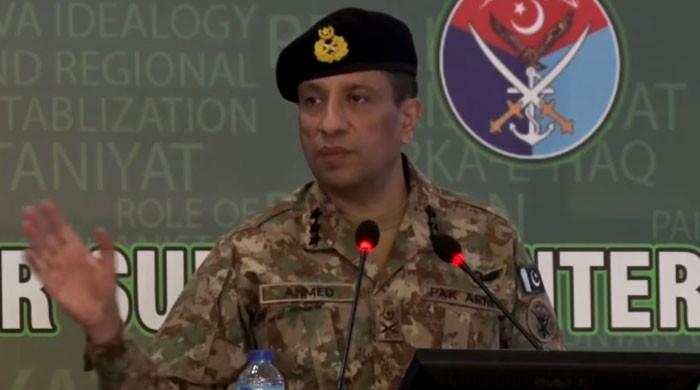DG ISPR Stresses Importance of Civilian Safety in Counter-Terrorism Efforts
Director General of the Inter-Services Public Relations (DG ISPR), Lieutenant General Ahmed Sharif Chaudhry, stated that the actions of a solitary terrorist should not jeopardize the safety of blameless civilians.
During an interaction with students from Balochistan, the DG ISPR affirmed that the military has no intention of harming civilians in the guise of counter-terrorism operations.
He highlighted the patriotism of Balochistan’s youth and underscored their understanding of the bond between the province and the nation.
Lieutenant General Chaudhry lauded Major Muhammad Anwar Kakar, recognizing him as an exceptional officer and a devoted son of the soil.
Referencing Major Kakar’s prior success in neutralizing terrorists during the Gwadar assault, the military spokesperson noted the constant sacrifices rendered by officers, soldiers, and civilians to protect the country.
He reiterated that no community should be held accountable for an individual’s actions. Successful operations rely on local collaboration to identify terrorists, rather than indiscriminate military actions. He cautioned that unaddressed threats could re-emerge after troops are withdrawn.
The DG ISPR also emphasised that all operations are based on precise intelligence to guarantee accuracy and civilian protection. He mentioned that the army collaborates with local administrations and the public to capture terrorists and their supporters, ensuring accountability without harming innocent residents.
Gen Chaudhry clarified that while civilians who harbor terrorists or store explosives will face consequences, the broader community should not be penalised.
The military’s media wing spokesperson commended the people of Balochistan for opposing terrorism and for actively reporting terrorist activities in their regions.
The ISPR chief addressed Pakistan’s foundational values, emphasizing that the nation was established on the principles of the Kalma, transcending linguistic or regional distinctions.
He cited notable Baloch individuals, such as Cambridge-educated scientist Samad Yar Jang, Shahzaib Rind, and female deputy commissioners, to illustrate that educated Baloch citizens are actively shaping their futures.
The DG ISPR noted that Balochistan’s population is not exclusively Baloch, with Pashtuns comprising over 30%, and highlighted that more Baloch people reside outside the province than within it.
In conclusion, the DG ISPR asserted that the essence of Pakistan—”Lā ilāha illallāh”—is ingrained in its citizens, reinforcing unity beyond ethnic or regional identities.



Comments (0)
No comments yet. Be the first to comment!
Leave a Comment